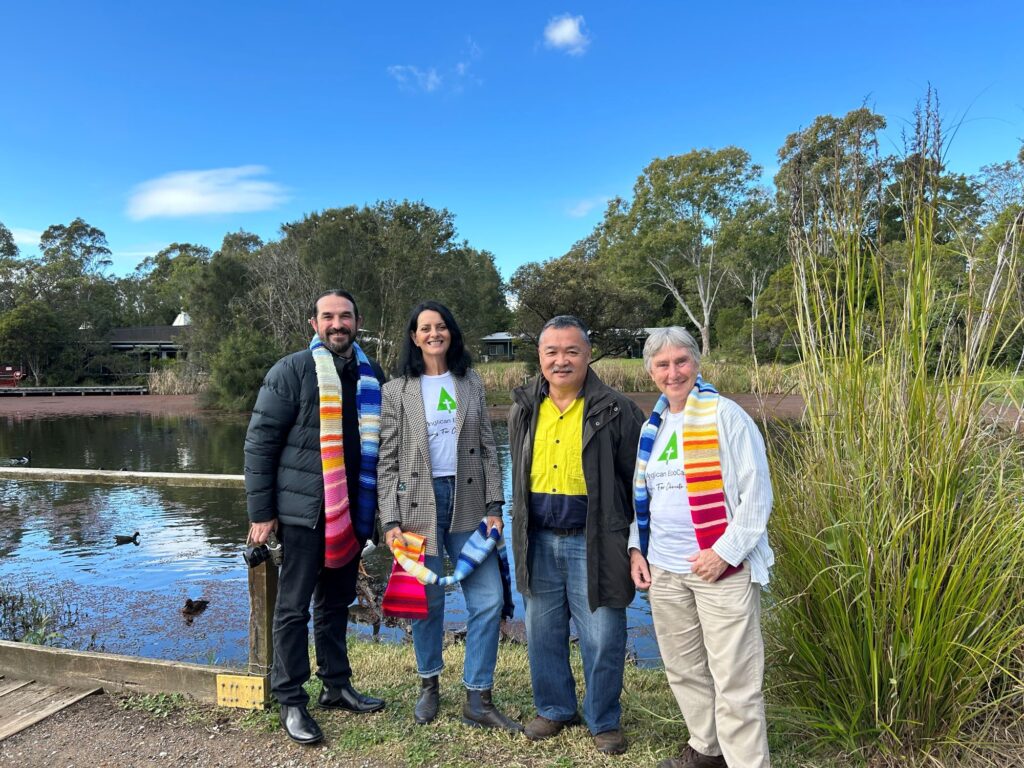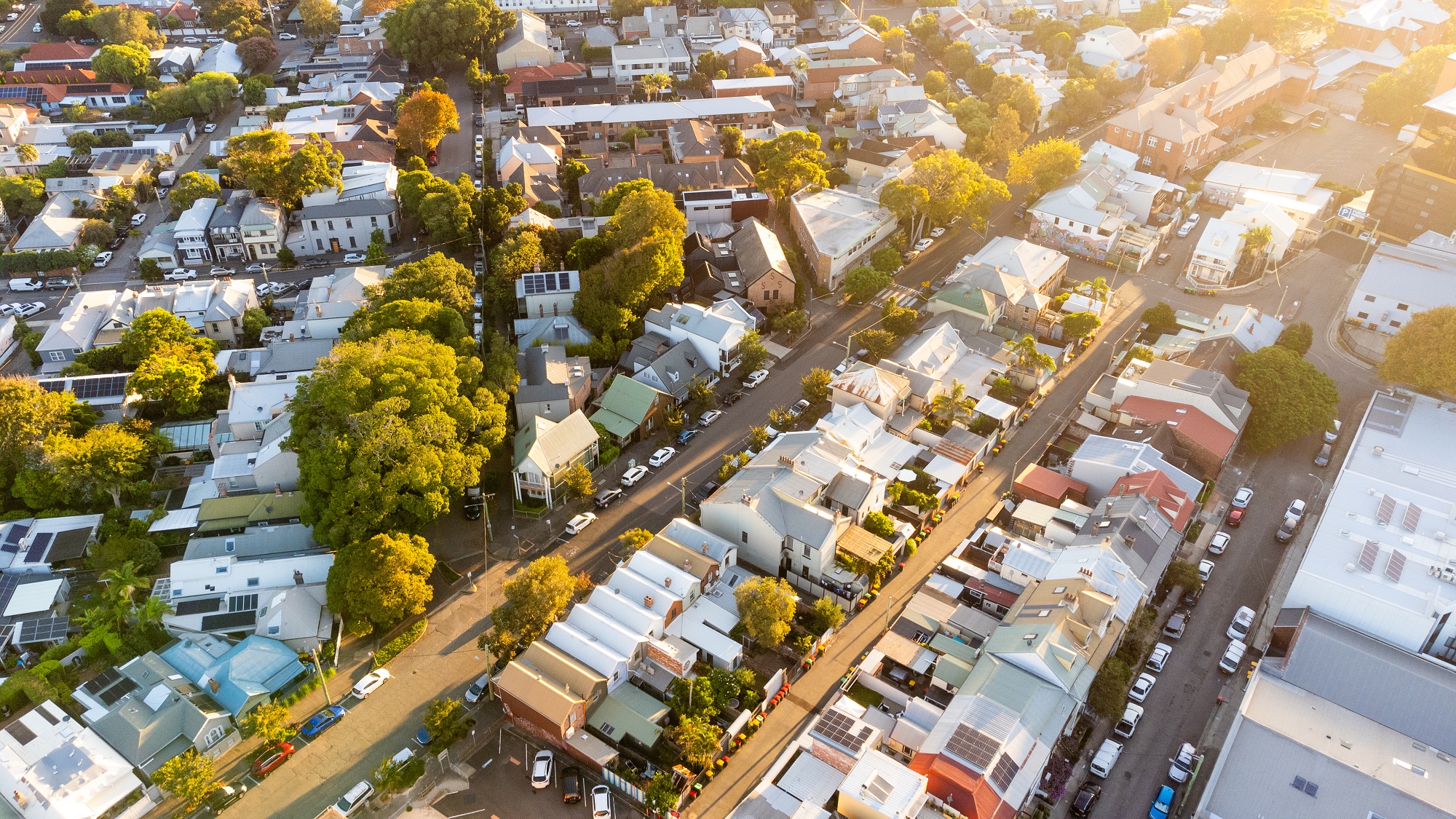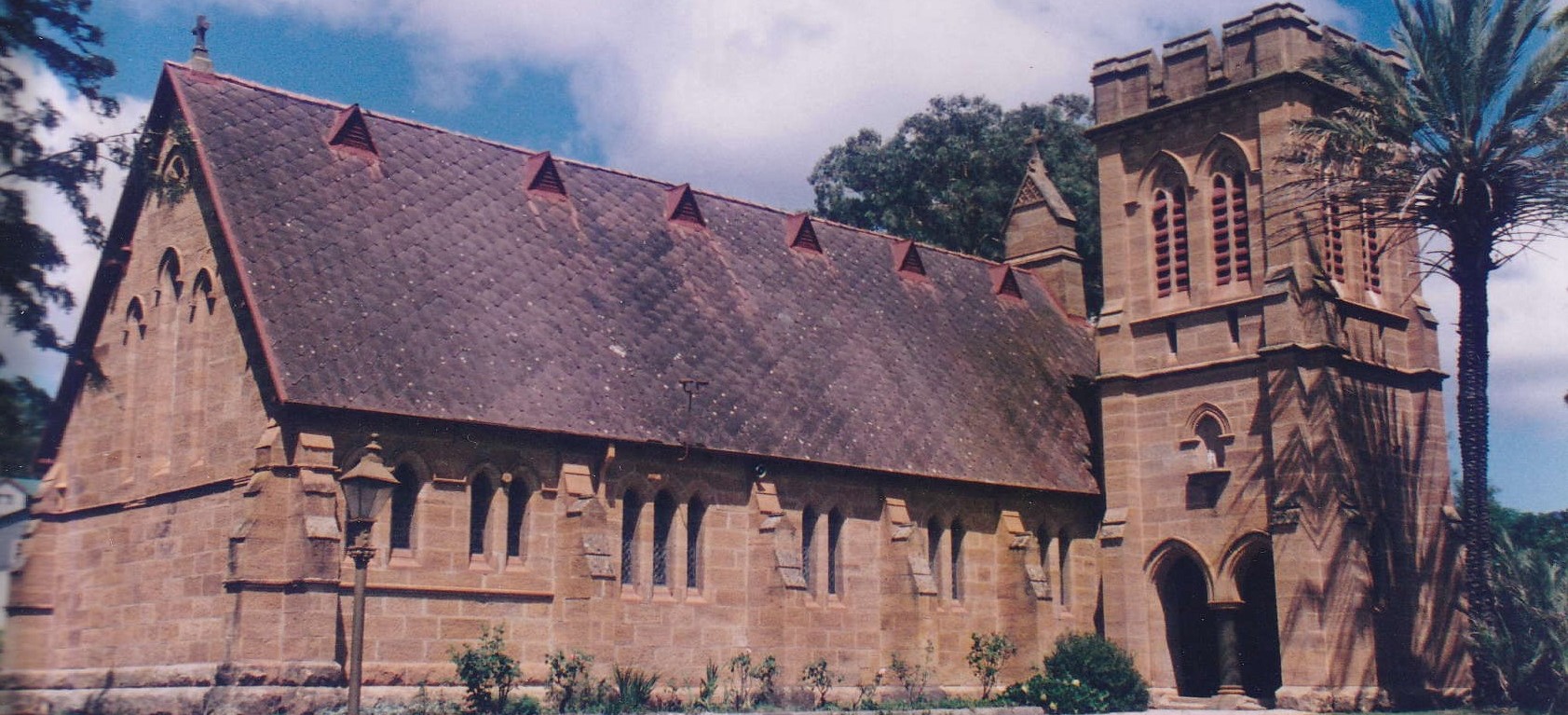Birds, fish, water, and trees set the scene as three members of Newcastle Anglican’s environmental arm sit down for a chat.
“We’re at the Hunter Wetlands Centre , and scientists tell us that if you cut open a bird or fish there is likely to be microplastics or plastics inside,” Anglican EcoCare Chair Reverend Andrew Eaton says.
“Part of our mission is to get parishes engaged with all aspects of being ecofriendly and environmentally aware.
“So, we’re encouraging parishioners and the Anglican Diocese of Newcastle to make lots of small changes to their lifestyles.”
Reverend Andrew is joined by fellow members Robyn Fry and Dr Di Rayson in discussing Anglicans’ longstanding concerns about environmental issues and their impact on people and the planet.
These concerns can be seen in the Five Marks of Mission – an important statement that describes the Anglican Communion’s common commitment, including to protect and conserve the environment and life on Earth.
On World Environment Day (5 June), Anglican EcoCare is renewing calls to reduce the number of plastics we consume in our everyday lives.
“We want our parishes to think about going plastic free with everything they do,” Reverend Robyn Fry says.
“That means no more plastic cups. Try instead to get things in paper or cardboard and buy products that don’t come in plastic.”
World Environment Day is a timely reminder that people’s actions on plastic pollution matters.
It also highlights the steps governments, businesses, and organisations are taking to tackle the issue.

“A number of our parishes will take the opportunity to plant trees on the day,” Reverend Andrew says.
“Dioceses all over the world will do the same and they are responding to the climate crisis, in line with the fifth mark of the Anglican Communion.
“We’d love our churches and different Diocesan agencies to take World Environment Day as a springboard into a greater focus on what we do.”
Apart from making small changes within its own parishes, the Diocese of Newcastle has also been leading the way on the world stage.
The Diocese was the first in Australia to make an official commitment to stop investing in fossil fuel companies.
This means its assets will be permanently off limits.
The Global Divestment Commitment, which included 30 other faith institutions from the USA, UK, Canada, Italy, and France, represented more than $2 billion in assets under management.
“It’s about creating systemic change,” Dr Rayson says.
“We are happy to support local church communities in making small changes to their everyday lives, but it’s those massive policy changes that we, as a Diocese, want to be involved in.”

















